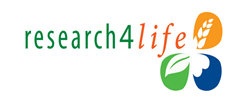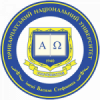Promoting Inclusion and Diversity: a Pathways to Preparing Future Teachers (Insights from Ukraine and Poland)
DOI:
https://doi.org/10.15330/jpnu.12.1.80-95Keywords:
teacher training, diversity, inclusion, inclusive competence, (in)tolerance in an inclusive classroom, discrimination, people with special educational needs (SEN)Abstract
This article explores the theoretical and practical aspects of inclusiveness and diversity in education, focusing on attitudes toward individuals with special educational needs (SEN). The authors substantiate principles of equal access to education, gender equality, the rights of persons with disabilities, and cultural diversity, aligning them with the Sustainable Development Goals and the strategic priorities of the European Union. To address the research objectives, the following methods were employed: analysis of scientific literature on inclusive education and educational equality; media monitoring of various aspects of tolerant and intolerant attitudes toward individuals with disabilities across different countries; a comparative approach to examine best practices in teacher training across European nations; a questionnaire survey to identify cases of discrimination or inclusion in schools; and mathematical-statistical methods to process quantitative survey data. The article presents the findings of a study conducted among 240 future primary school teachers at Vasyl Stefanyk Precarpathian National University (Ukraine) regarding their readiness to embrace diversity and apply innovative technologies in inclusive classrooms. It also highlights the university’s strategy for collaboration with schools and communities to promote inclusion and educational equality. Additionally, it explores the implementation of student exchange programs and international initiatives that enhance the professional experience of future teachers, as well as the support for social initiatives fostering an inclusive culture, as exemplified by the Pomeranian University in Słupsk (Poland). The article emphasizes the crucial role of mentoring in education and the need to support children from diverse social and ethnic backgrounds, including migrants, students with special educational needs, and national minorities. It also presents examples of pedagogical innovations that foster inclusivity and various barriers to access – mental, physical, informational, educational, and psychological – implemented in teacher training programs in Ukraine and Poland. The article explores several approaches to enhancing future teachers' infomedia literacy in the context of inclusion and diversity by analyzing media materials and online sources. Examining methodological case studies helps identify common trends and innovative strategies in teacher training, which can be adapted and integrated into educational practices across different countries.










